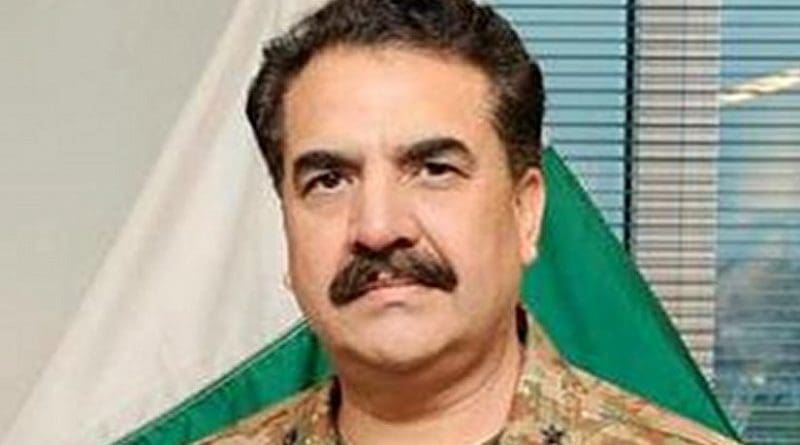Sabotage And Rule: Pakistan Army’s Attempt To Permanently ‘Suspend’ Peace Process With India – Analysis
By Amulya Ganguli*
It is not only the Indian Prime Minister Narendra Modi who has been rebuffed by the Pakistan army chief, Raheel Sharif, over the peace process between the two countries, Nawaz Sharif, too, must have felt the humiliating blow from someone who is supposed to be below him in the pecking order. In Pakistan’s lopsided hierarchy, however, it is the army chief who calls the shots and not the prime minister.
It is now clear that the former has been doing so from the scuttling of the Ufa proposals to the post-Pathankot initiative taken by New Delhi and Islamabad. For Modi, the last fiasco must have been the most disheartening of all, for he had put all his good intentions on line by talking to Nawaz Sharif in Paris during the summit on climate change and then flying into Islamabad following a casual request from the Pakistan prime minister to drop in while travelling from Kabul to Delhi.
The terrorist attack on the Pathankot air base was Raheel Sharif’s roadblock for the gathering momentum of Indo-Pak peace dialogue. The Pakistan army chief followed it up with one of the most insulting of rebuffs to India by ensuring that it would be the Pakistan high commissioner in New Delhi who will “suspend” the peace talks.
The slight was intended, first, to dissuade Modi from visiting Islamabad for the SAARC summit and, secondly, to permanently terminate any further movement in the direction of peace.The Pakistan army and the ISI – also known as the Deep State – must have been exasperated by the continuing endeavours of the civilian leaders of the two countries to resolve their differences.
The latest contacts between them must have appeared to the Deep State as the most “disturbing” of all because of the care taken by New Delhi and Islamabad to hold the preliminary negotiations between the National Security Advisers of the two countries away from the prying eyes of the media in Bangkok to avoid the fiasco of the Ufa (non) agreement which avoided mentioning Kashmir.
There were other signs too of the ice melting during the External Affairs Minister Sushma Swaraj’s trip to Pakistan to attend the “Heart of Asia” talks in December. During it, she met Nawaz Sharif’s mother who told her that the Indian minister had come from “my country” (mere watan) as she was born in Amritsar before partition. All this was obviously too much for the Deep State. Its great fear is that the civilians will barter away Kashmir – the two-thirds of the state which Pakistan says is under Indian control – by agreeing to an open border in keeping with Manmohan Singh’s suggestion that the Line of Control be made irrelevant by improving the relations between the two countries.
Such a denouement will deal a crippling blow to the Deep State since a peace settlement will dramatically reduce the role of the army and the spy agency as Pakistan returns permanently to the hands of the civilians, a prospect which has been resisted by the army from Ayub Khan’s time. Hence, its latest blow of the “suspension” of the talks and the mockery of a visit by a Pakistani team to Pathankot and their verdict that the terror attack was the handiwork of the Indians.
Since the Indian reaction is bound to be harsh, with Modi trying to deflect domestic criticism of having been naïve, the Pakistan army is likely to use India’s “aggressive designs” to increase tension in the border areas.
Rawalpindi, the headquarters of the Pakistan army, is aware that Washington will continue to ask India and Pakistan to resume their dialogue. But the US has been doing so for years without success. The only difference in America’s attitude has been that it no longer asks India to make any concessions on Kashmir, having realized how such a retreat by India will encourage the jihadis in Pakistan whose enemy is not only their immediate neighbour but also the US and, indeed, the West.
Raheel Sharif will be more interested, therefore, in the support which China has been unfailingly offering to Pakistan – or, rather, that part of Pakistan which believes in permanent hostility towards India – for Nawaz Sharif seemingly has a different approach to the Indo-Pak ties.
As for Modi, the present stalemate can be said to mark the end of the road on which he embarked when he invited Nawaz Sharif and other SAARC heads of government to his swearing-in ceremony.
All that the Indian and Pakistani prime ministers can do, therefore, is to wait for Raheel Sharif’s term to end next year. But there is no guarantee that the next army chief will not follow his predecessor’s prescription for completing the unfinished business of partition by trying to annex Kashmir by hook or by crook. There is little doubt that India-Pakistan relations are currently at their lowest ebb.
*Amulya Ganguli is a writer on current affairs. He can be reached at: [email protected]

